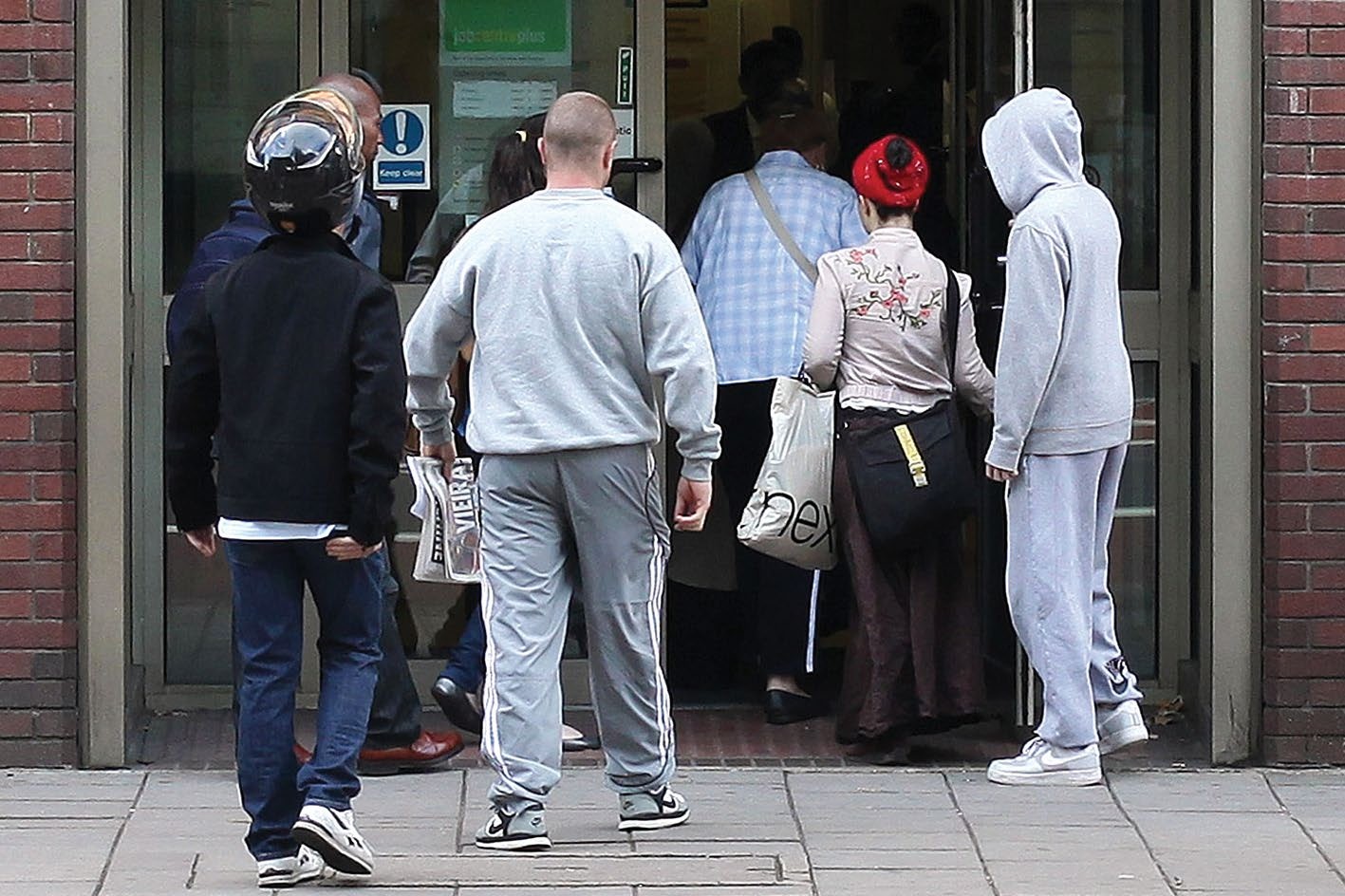Has the pandemic created a wave of “zombie companies”?
Zombie companies have been an ever-growing problem. The Covid-19 aftermath could see numbers soar


Get the latest financial news, insights and expert analysis from our award-winning MoneyWeek team, to help you understand what really matters when it comes to your finances.
You are now subscribed
Your newsletter sign-up was successful
Want to add more newsletters?
Something very unusual has happened to corporate bankruptcies over the past year. As John Authers notes in his Bloomberg newsletter, looking at data going back to 1993, “the corporate death rate has never been lower than it is now” in the UK. It’s a similar story in the US and the rest of Europe. As writers at the Bank for International Settlements (BIS) pointed out in a recent paper, this is not at all what we expect to see after a recession. Based on the spike in unemployment and the slump in GDP, history would suggest that we should have seen a significant rise in companies going bust. Instead “a ‘bankruptcy gap’ has opened up between measures of expected and realised bankruptcies”.
So what’s going on? One factor, says the BIS, is simply that Covid-19 hit specific sectors – mostly consumer-facing businesses – much harder than others. Other sectors were recovering rapidly by the second half of last year. But a much more important factor is “the ample supply of credit, facilitated by unprecedented monetary and fiscal support”. This has “plugged the cashflow gap for many firms”, enabling them to cover their losses. The risk now, however, says the BIS, is that a slower-than-hoped recovery turns these companies into “zombies” (see below) – businesses with little hope of ever making enough to repay their debts, and that can only survive for as long as interest rates stay low and lenders don’t call in their debts.
One obvious problem is that this could then result in a wave of bankruptcies further down the line, which could cause problems elsewhere in the financial system (notably via the commercial property sector, whose health is critical to the banking sector). But rather than another financial crisis, there is an alternative outcome which markets judge more likely, notes Authers, at least judging by the lack of default risk priced into the riskiest corporate debt. It’s that central banks will instead continue to “effectively force everyone to lend to the government, and to companies, at otherwise uneconomic rates”.
Try 6 free issues of MoneyWeek today
Get unparalleled financial insight, analysis and expert opinion you can profit from.

Sign up to Money Morning
Don't miss the latest investment and personal finances news, market analysis, plus money-saving tips with our free twice-daily newsletter
Don't miss the latest investment and personal finances news, market analysis, plus money-saving tips with our free twice-daily newsletter
This form of “financial repression” prevents a short-term collapse. But it turns a problem of company-specific solvency into an economy-wide productivity problem. The Power of Creative Destruction, a recent book by economists Philippe Aghion, Celine Antonin and Simon Bunel argues that “constant innovation is the driving force of capitalism and the catalyst of long-term growth”. A key aspect of this is that weak companies are allowed to go bust, freeing up resources for companies which will use them more effectively. If firms are shielded from this process, then sclerosis sets in. Productivity is also all about doing more with less – so this scenario also adds to the case for longer-term inflation.
I wish I knew what a zombie company was, but I’m too embarrassed to ask
Put simply, a zombie company is one that earns enough money to keep running, and to pay the interest on its debts, but not enough to expand, invest or to pay down its debts. In other words, it’s neither alive nor dead – it’s just shambling along, dependent on the ongoing indulgence of its lenders, and highly vulnerable to the slightest business shock.
The Bank for International Settlements (BIS) looks at a number of criteria to identify a zombie. It has to be reasonably mature – young firms are often loss-making, but that’s because they are at the “invest and build” stage of development. A company also has to be more than just currently loss-making – it also has to show little sign of being able to turn a profit in the foreseeable future (ie, it hasn’t been hit by temporary issues, such as restructuring).
Being more specific (these measures apply only to non-financial firms, as the ratios make no sense if applied to banks, say) the BIS defines a zombie as a company that’s at least ten years old and which has had an interest coverage ratio of less than one for at least three years in a row (in other words, its earnings haven’t even covered the interest payments on its debts).
A 2018 study from the BIS found that using these criteria, the percentage of zombie firms had risen from just 2% in the late 1980s, to 12% by 2016. The biggest factor driving this rise was the long-term slide in interest rates seen in recent decades.
On the one hand, the slump in interest rates enables struggling companies to refinance at lower interest rates, allowing them to shuffle on for a bit longer. On the other hand, low rates encourage a “reach for yield” by investors desperate for any sort of return on their money. As a result they become more willing to lend with ever fewer protections to even highly risky firms, in order to harvest slightly higher rates than they could get by investing elsewhere.
Get the latest financial news, insights and expert analysis from our award-winning MoneyWeek team, to help you understand what really matters when it comes to your finances.

-
 What do rising oil prices mean for you?
What do rising oil prices mean for you?As conflict in the Middle East sparks an increase in the price of oil, will you see petrol and energy bills go up?
-
 Rachel Reeves's Spring Statement – live analysis and commentary
Rachel Reeves's Spring Statement – live analysis and commentaryChancellor Rachel Reeves will deliver her Spring Statement on 3 March. What can we expect in the speech?
-
 UK small-cap stocks ‘are ready to run’
UK small-cap stocks ‘are ready to run’Opinion UK small-cap stocks could be set for a multi-year bull market, with recent strong performance outstripping the large-cap indices
-
 The scourge of youth unemployment in Britain
The scourge of youth unemployment in BritainYouth unemployment in Britain is the worst it’s been for more than a decade. Something dramatic seems to have changed in the labour markets. What is it?
-
 In defence of GDP, the much-maligned measure of growth
In defence of GDP, the much-maligned measure of growthGDP doesn’t measure what we should care about, say critics. Is that true?
-
 Reach for the stars to boost Britain's space industry
Reach for the stars to boost Britain's space industryopinion We can’t afford to neglect Britain's space industry. Unfortunately, the government is taking completely the wrong approach, says Matthew Lynn
-
 "Botched" Brexit: should Britain rejoin the EU?
"Botched" Brexit: should Britain rejoin the EU?Brexit did not go perfectly nor disastrously. It’s not worth continuing the fight over the issue, says Julian Jessop
-
 'AI is the real deal – it will change our world in more ways than we can imagine'
'AI is the real deal – it will change our world in more ways than we can imagine'Interview Rob Arnott of Research Affiliates talks to Andrew Van Sickle about the AI bubble, the impact of tariffs on inflation and the outlook for gold and China
-
 Tony Blair's terrible legacy sees Britain still suffering
Tony Blair's terrible legacy sees Britain still sufferingOpinion Max King highlights ten ways in which Tony Blair's government sowed the seeds of Britain’s subsequent poor performance and many of its current problems
-
 How a dovish Federal Reserve could affect you
How a dovish Federal Reserve could affect youTrump’s pick for the US Federal Reserve is not so much of a yes-man as his rival, but interest rates will still come down quickly, says Cris Sholto Heaton